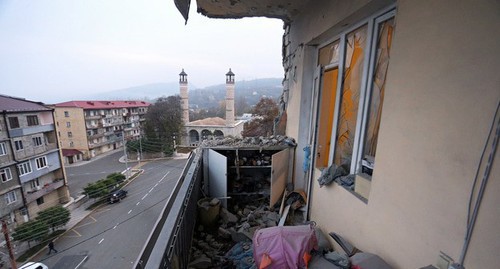
09 November 2020, 11:04
Analysts clarify value of Shushi in war for Nagorno-Karabakh
The control over the city of Shushi, the capture of which was announced by President of Azerbaijan on November 8, plays a key role in the war for Nagorno-Karabakh due to its proximity to Stepanakert and the ability to manage transport communications, experts have explained.
The "Caucasian Knot" has reported that on November 8, Ilham Aliev announced that Azerbaijani troops had established control over the city of Shusha (the Armenian name is Shushi). The Armenian Ministry of Defence (MoD) did not confirm this information, stating that the fighting for the city is still ongoing.
The control of Azerbaijani troops over Shusha means a radical turning point in the war, Telman Abilov, the head of the NGO "Military Officers", explained earlier to the "Caucasian Knot". "The strategic purpose of the city is not only that it hangs over Khankendi (the Armenian name is Stepanakert), located at its foot, but also in the passage through it of the key transport artery – the Goris-Lachin-Shusha-Khankendi highway, which connects Armenia with Nagorno-Karabakh," Mr Abilov has explained.
Blocking transport routes between Armenia and Nagorno-Karabakh is an obvious military goal of Azerbaijan, Azad Isazade, a former employee of the information-analytical department of the Azerbaijani MoD, told the "Caucasian Knot". "This is important for preventing the transfer of additional forces and military equipment from Armenia to Nagorno-Karabakh, as well as for depriving the troops of supplies," he has noted.
For Azerbaijan, the control over Shusha means the strengthening of its positions in the Karabakh conflict, Vladimir Kazimirov, a former plenipotentiary of the Russian president for Nagorno-Karabakh and ex-co-chairman of the OSCE Minsk Group, has explained. "Shusha is of great importance. The fact is that it is located above Stepanakert; and in 1992, Azerbaijanis shelled Stepanakert from the Shusha area," the RIA "Novosti" has quoted Mr Kazimirov as saying today.
This article was originally published on the Russian page of 24/7 Internet agency ‘Caucasian Knot’ on November 8, 2020 at 04:45 pm MSK. To access the full text of the article, click here.




